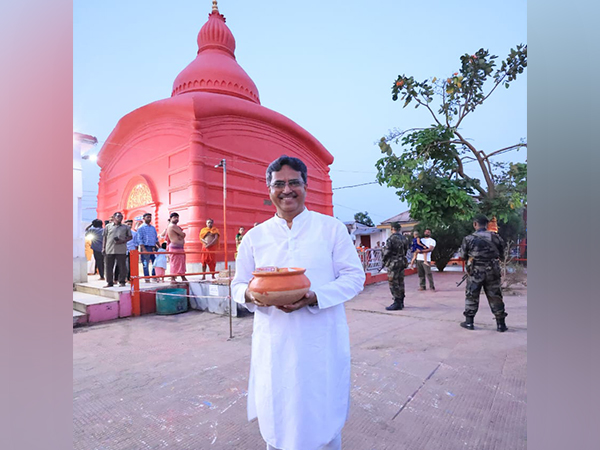In a significant development, Matabari ‘Peda’, a milk-based sweet, and the traditional Rignai of Tripura have been granted the Geographical Indication (GI) tag. Matabari Peda, an offering to the deity at the Tripura Sundari temple, holds deep religious significance, while Rignai is an integral part of Tripura’s indigenous communities’ attire, reflecting the region’s rich cultural heritage.
Chief Minister Manik Saha attributed this achievement to Prime Minister Narendra Modi’s ‘Vocal for Local’ initiative, underscoring its role in bolstering prosperity. Saha hailed the recognition of these products as a testament to Tripura’s cultural legacy and economic empowerment.
He emphasised the global significance of Tripura’s local produce and indigenous craftsmanship extending his heartfelt congratulations to Matabari Mahila Cluster Level Bahumukhi Sambay Samity Limited of Udaipur and Dewanbari Mahila Cluster Bahumukhi Sambay Samity Limited for their commitment to preserving heritage and promoting self-reliance on Sunday.
With this latest inclusion, Tripura’s GI-tagged products now total four, including the renowned queen variety of pineapple and the traditional tribal attire Risha. However, the state’s application for the GI tag for Jackfruit faced rejection. The certification for Matabari Peda and Rignai was officially announced on March 30, 2024, valid until March 2033, marking a significant moment in Tripura’s cultural and economic landscape.
Acting as custodians of tradition, Matabari Mahila Cluster Level Bahumukhi Samabay Samiti and Dewanbari Mahila Cluster Bahumukhi Samabay Samity played pivotal roles as applicants for the GI certification, facilitated by Tripura Rural Livelihood Mission.
Assam’s traditional heritage honoured with GI Tags
Six iconic items from Assam, such as the Assamese Dhol and Jaapi, have recently been bestowed with esteemed Geographical Indication (GI) tags by the Government of India. These include the Assam Bihu Dhol, Assam Jaapi, Sarthebari Metal Craft, Panimeteka craft (water hyacinth), Mising taat (handloom), and Asharikandi’s terracotta works.
According to Sarma, a prominent figure involved in the process, these products, deeply intertwined with Assam’s history, directly support around one lakh people.
Introduced in India in 2003, the GI tag system aims to recognise products’ origin and unique qualities. It serves as a trademark in the international market. Notably, Assam’s renowned Majuli Masks and manuscript paintings were also recently granted GI tags, showcasing the rich cultural heritage of the state.
Here is a brief overview of some of the distinguished items:
- Assamese Dhol: A vital musical instrument in Assam’s folk culture, played with a stick and hand, featured prominently in the world’s largest Bihu dance last year.
- Assamese Jaapi: Symbolizing pride and respect in Assamese culture, these bamboo/cane and palm leaf hats are integral to the state’s traditions.
- Sarthebari Metal Craft: Handmade bell metal utensils with socio-cultural and religious significance, associated with ritual practices of Nava Vaisnava religion.
- Panimeteka: Craft made from water hyacinth, previously considered waste but now utilized for employment generation, particularly by the Assam State Rural Livelihood Mission.
- Mising Handloom Products: Traditional cloth-making by the Mising indigenous tribal community, including garments and traditional attire, with significant cultural value, especially for ceremonies and occasions.







